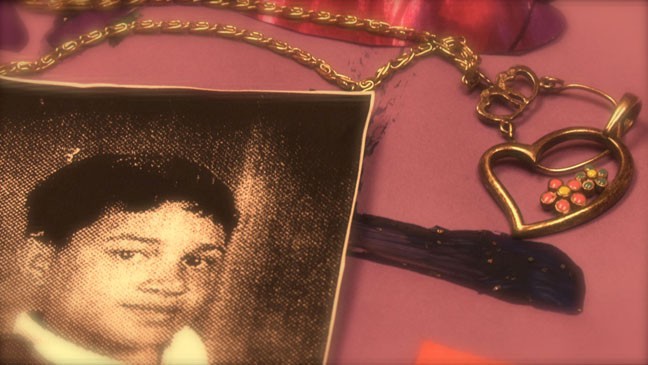The documentary Valentine Road — depicting the aftermath surrounding the shooting of young Oxnard, California high school student Larry King — had
been winning accolades and gaining support even before the movie premiered at Sundance last January and began airing on HBO this month. But since the
film’s debut on cable, support has only strengthened the overall message of the film, inciting calls for change and an end to bullying.
Mandy Moore and Ellen DeGeneres tweeted endorsements of the film to millions of followers, outlets including the L.A. Times, New York Times, USA Today and Village Voice have been lauding it with positive reviews, and viewers have been praising the
film for its unflinching view of bullying — and its exhaustive examination of all sides of the equation. But none of this would be happening had it not
been for the driving passion of director Marta Cunningham, who was so taken by King’s story that she couldn’t let it go.
“As a mother, it was troubling to me when I heard what had happened on the news,” Cunningham shared. “I couldn’t get Larry out of my head, but I also
couldn’t get Brandon out of my head. This was a boy who’d made a decision that was threatening to keep him in jail for the rest of his life. I couldn’t
stop thinking about it, and finally, I decided I had to do something about it.”
For Cunningham, a first-time filmmaker, the pieces fell into place quickly. She followed the story from the genesis of the shooting and throughout the
subsequent trials, interviewing everyone from classmates to faculty members, King’s foster family and friends, as well as the detectives and legal teams
from both sides of the case. But Cunningham didn’t stop there — she also delved into shooter Brandon McInerny’s side of the tale, speaking with his mother
and brother about the troubles that led him to make the fateful decision to shoot King point blank in the back of the head after King asked McInerney to be
his valentine.
Cunningham was pleased to find support from HBO from the beginning, and worked closely with producers including Sasha Alpert, whose prior credits include
the documentary Autism: The Musical. What drew Alpert to the story was similar to what inspired Cunningham, although she was certain they were
going to raise more questions than answer. Says Alpert, “It was an incredibly complex story to tell, because on one hand, there was a child who was shot
down in cold blood. And on the other hand, there’s another kid who is — at age 14 — facing the possibility of spending all of his life in jail. That didn’t
seem fair, and neither did the crime.”
As Cunningham and Alpert — both women parents themselves — worked together with their team to bring the story to screen, they found themselves creating
relationships with the kids they interviewed. “I still stay in touch with them,” Cunningham shares. “They’ve touched my life in ways I’d never imagined,
and they’ve thanked us for telling the story in a way that no one else had. I was pleased to be a part of what helped give them a voice.” Adds Alpert, “We
were lucky to have somewhat of a mentorship relationship with some of the kids. It was a difficult film to make, but it was wonderful to watch them grow,
get accepted into college, and heal from the experience.”
Going forward, Cunningham’s wish for the film is simple. “I’d like to see it be included as part of school curriculum across the country,” Cunningham says.
“I think it would be a powerful way to create discussion around these issues of identity, acceptance, tolerance and more, and these things aren’t really
being discussed in the classroom. As we’ve seen through screenings we’ve done that have offered panel discussions afterward, watching the movie can be a
great way to open students up to talking about things they might not be comfortable talking about otherwise, and asking questions that they might be afraid
to ask.”
“Ultimately, we wanted to make a film that started a discussion that encouraged change,” Alpert notes. “Change can be slow to come, but at least this film
can begin the dialogue, and from there, we can start to make different choices and have different understandings — both about this case, and ourselves.”
Valentine Road
is screening on HBO throughout the month, and is available on HBO Go.
____________________________________
A Canadian ex-pat with a passion for pop culture, Carly Milne has contributed to Glamour, Variety, Rolling Stone, Esquire.com, Maxim, the Chicago Sun Times and many others. She’s also a multi-published author, public speaker and screenwriter. She lives in Los Angeles. Check out her
website, CarlyMilne.com







